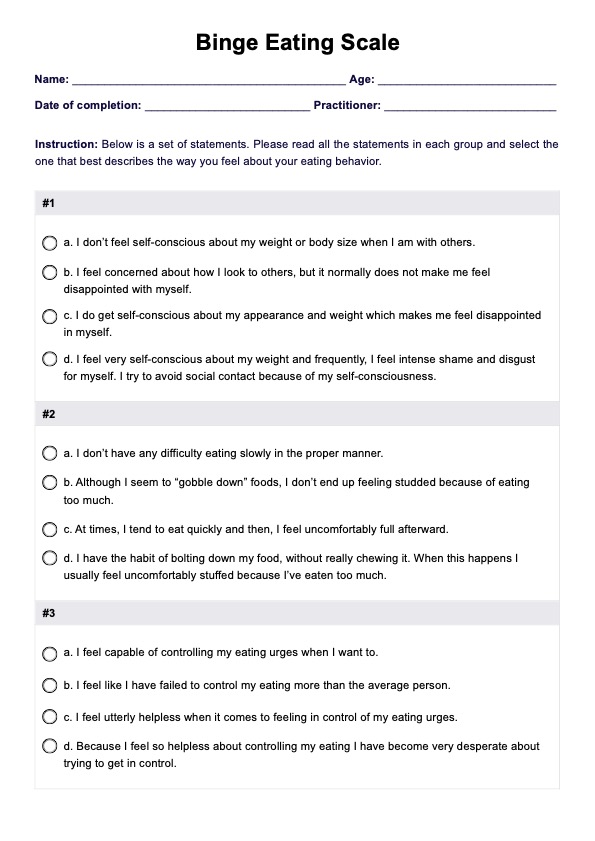Healthcare practitioners, therapists, and researchers to assess binge eating behaviors in patients or study participants.

Binge Eating Scale
Use this scale to monitor progress and facilitate informed, compassionate care for clients who are living with Binge Eating Disorder.
Use Template
Binge Eating Scale Template
Commonly asked questions
The Binge Eating Scale (BES) is not a diagnostic tool on its own. It provides insights into binge eating tendencies and severity, which can assist healthcare practitioners in making informed decisions about diagnosis and treatment.
Yes, printable Binge Eating Scale (BES) templates are available online for free. These templates can be downloaded, filled out, and scored manually.
EHR and practice management software
Get started for free
*No credit card required
Free
$0/usd
Unlimited clients
Telehealth
1GB of storage
Client portal text
Automated billing and online payments











